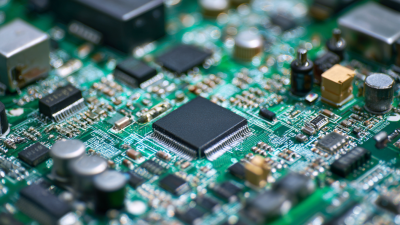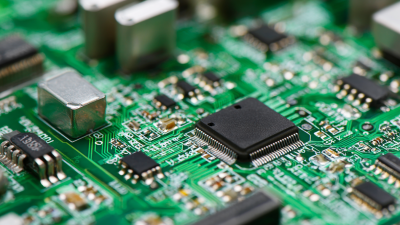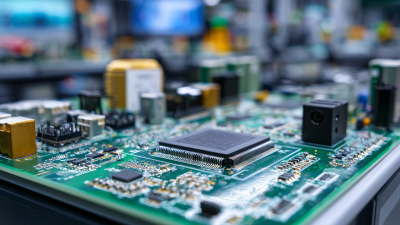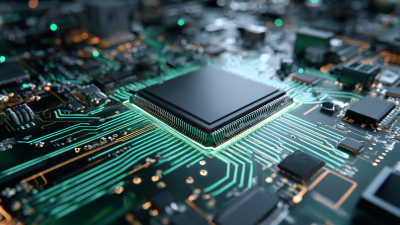WORLD electronics offers a complete line of electronic circuit board manufacturing and assembly services, as well as advanced manufacturing services. Our commitment to quality and service is second to no supplier.
Learn MoreOur team of engineers assists you in the development of new designs to optimize quality manufacturability (DFM) and testability, resulting in cost minimization and reduced product development time.
Learn MoreOur flexible manufacturing floor layout and highly trained staff allow for Quick Set-up and Tear Down of small volume prototype runs. This combination grants our customers the benefit of turning new designs quickly and accurately.
Learn MoreWORLD electronics is dedicated to quality. This quality is what underpins our commitment to thorough testing. Our engineers can develop a set of tests that ensure reliability and high performance in all products.
Learn MoreSupply chain management has crossed over from being a narrow management function to being a key operational function.
Learn MoreThe rapid evolution of technology is paving the way for groundbreaking innovations in electronics boards, which are increasingly at the forefront of modern electronic devices. According to a recent market research report by MarketsandMarkets, the global printed circuit board (PCB) market, which includes electronics boards, is projected to reach USD 82.42 billion by 2025, growing at a CAGR of 4.8% from 2020. This growth is driven by advancements in miniaturization, increased demand for smart devices, and the integration of Internet of Things (IoT) applications. As industries shift towards more environmentally friendly production methods, innovations in materials and designs are also being explored to enhance efficiency and reduce waste. With these developments, electronics boards are poised not only to transform technology but also to redefine how we engage with our digital world in the years to come.
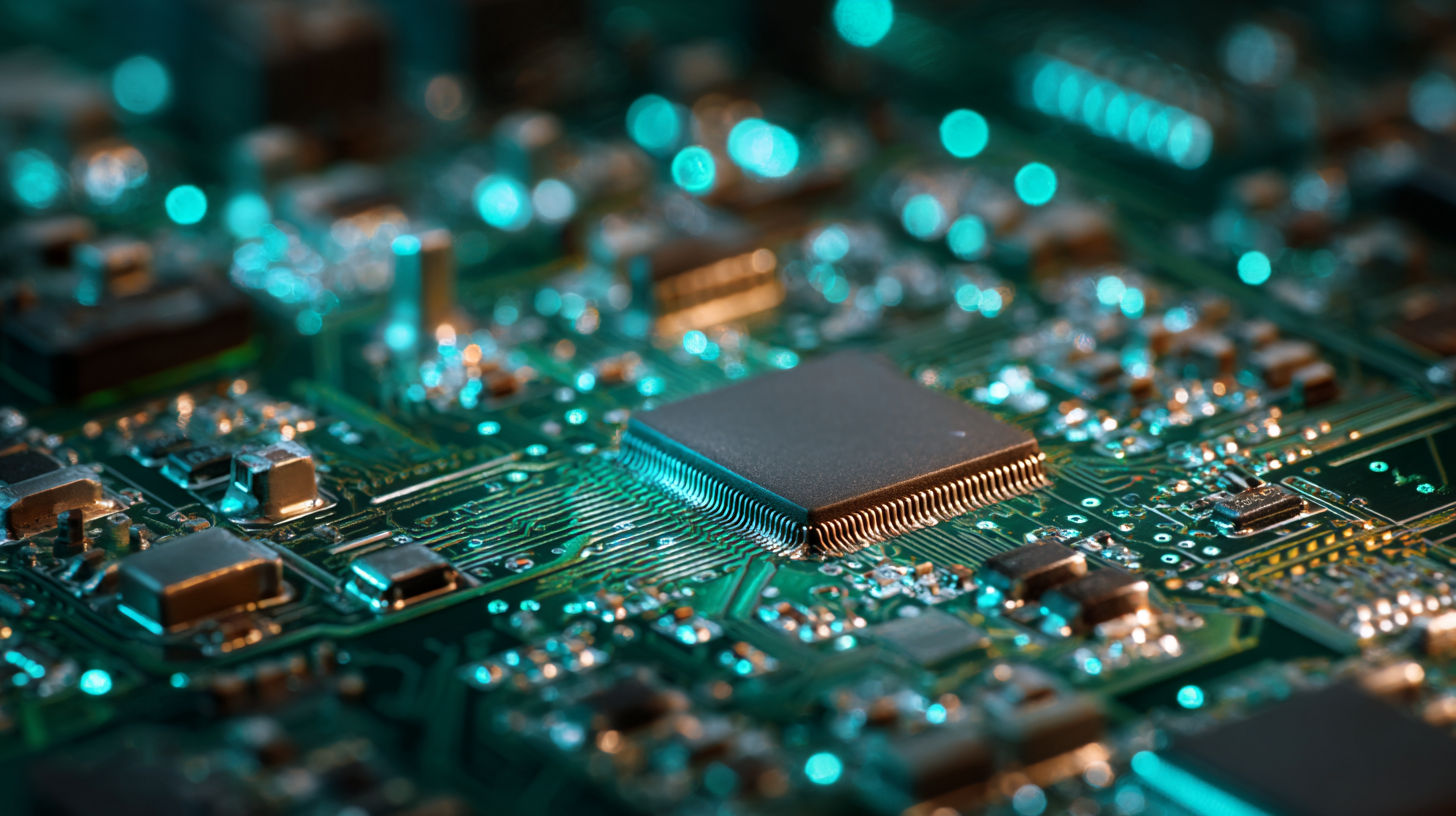
The evolution of electronics boards in recent years has been marked by significant innovations that are transforming various technology sectors. As industries increasingly embrace advanced technologies, the demand for high-performance electronics boards is surging. Reports indicate that the global electronics board market is projected to reach $80 billion by 2025, driven by advancements in areas such as telecommunications, automotive electronics, and IoT devices.
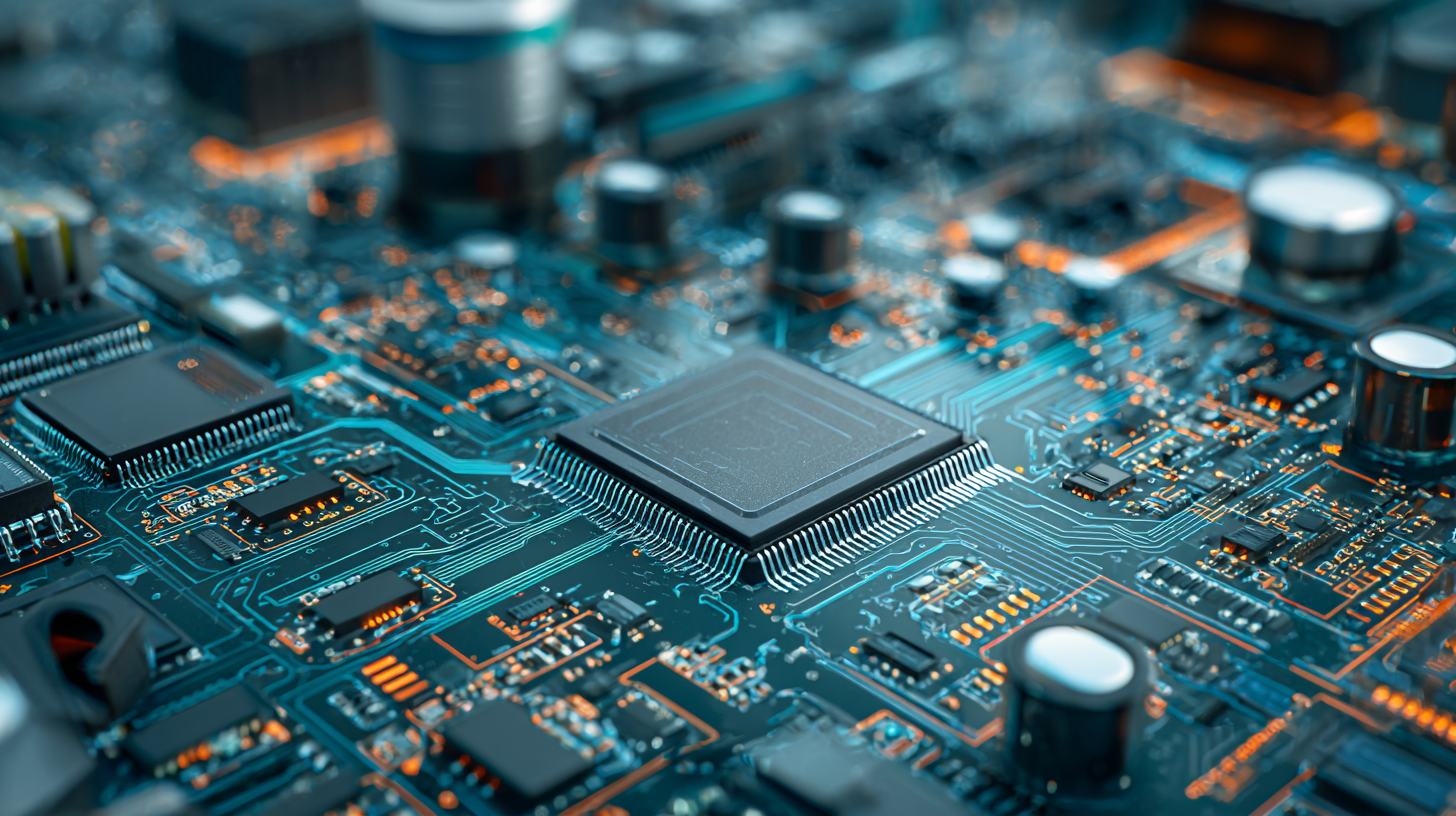
A key focus in the design of electronics boards is the integration of cutting-edge materials and manufacturing techniques. For instance, the rise of high-power RF amplifiers is crucial in sectors like telecommunications and defense, where reliability and efficiency are paramount. Recent discussions in industry forums have highlighted how the pursuit of improved thermal management and miniaturization in electronics design is reshaping product capabilities, enhancing operational performance, and offering new functionalities that were previously unattainable.
Moreover, the collaborative efforts between academia and industry are fostering a culture of innovation. As showcased in recent seminars, leading experts are exploring sustainable materials and next-gen fabrication techniques to address the evolving demands of the electronic landscape. These advancements not only push the boundaries of what is possible but also play a critical role in sustaining competitiveness in the rapidly changing global market.
The integration of the Internet of Things (IoT) with electronics boards is at the forefront of a technological transformation that promises to revolutionize how we interact with devices. According to a report by MarketandResearch.biz, the global IoT market is expected to reach approximately $1.1 trillion by 2026, growing at a compound annual growth rate (CAGR) of 25%. This rapid expansion highlights the escalating importance of electronics boards that support IoT applications, making them pivotal for the design of smarter technology solutions.
Electronics boards, designed with IoT capabilities, allow diverse devices to communicate seamlessly, collect data, and respond to environmental changes in real-time. A study by the International Data Corporation (IDC) indicates that nearly half of all IoT deployments are expected to utilize smart electronics boards by 2024. This trend is pushing manufacturers to innovate, leading to the development of more advanced modules equipped with features like enhanced connectivity options, low power consumption, and adaptability for various applications from smart homes to industrial automation. As this integration progresses, we will see an uptick in devices that not only connect but also learn from user behavior, ultimately enriching user experiences and enhancing operational efficiencies.
The future of electronics boards is increasingly being shaped by the use of sustainable materials, which stand at the forefront of eco-friendly innovations. As the demand for electronic devices continues to grow, so does the urgency to minimize their environmental impact. Traditional materials such as fiberglass and plastics contribute to significant waste and pollution; however, the shift towards bio-based resins and recyclable substrates marks a pivotal change. These innovative materials not only help reduce the carbon footprint of electronics manufacturing but also enhance the recyclability of the products themselves.
Moreover, advancements in sustainable technologies pave the way for new manufacturing processes that prioritize energy efficiency and waste reduction. Techniques like additive manufacturing and the integration of organic materials can lead to lighter, more efficient electronics boards. This not only aligns with global sustainability goals but also meets consumer demand for greener products. The incorporation of sustainable materials into electronics boards embodies a holistic approach to innovation, transforming how the industry envisions the lifecycle of electronic devices and their ultimate impact on our planet.
This bar chart represents the adoption rates of various sustainable materials in electronics boards over the past five years. The data highlights the growing trend towards eco-friendly innovations in the electronics industry.
The landscape of electronics boards is undergoing a transformative shift, primarily driven by advanced chip technologies that promise to enhance both performance and efficiency. Modern electronics boards are now equipped with state-of-the-art chips designed to process data at unprecedented speeds while consuming significantly less power.
Innovations such as system-on-chip (SoC) integration have enabled the consolidation of various functions onto a single chip, resulting in reduced space requirements and improved thermal management.
Moreover, advancements in semiconductor materials, such as gallium nitride (GaN) and silicon carbide (SiC), are revolutionizing power electronics within these boards. These materials not only facilitate higher voltage tolerances and faster switching speeds but also contribute to substantial energy savings. As a result, industries ranging from consumer electronics to automotive applications are witnessing enhanced operational efficiencies, paving the way for more sustainable technologies.
With a keen focus on miniaturization and performance optimization, the future of electronics boards is poised to redefine how we interact with increasingly sophisticated electronic systems.
The integration of artificial intelligence (AI) is fundamentally transforming the development and functionality of electronics boards, as evidenced by the rapid advancements in this sector. According to a report by Gartner, the global AI hardware market is projected to reach $90 billion by 2025, indicating a significant shift towards AI-enabled devices, including electronics boards. This surge is largely driven by the need for enhanced processing capabilities, enabling boards to perform complex computations and execute machine learning algorithms in real-time.
Incorporating AI into electronics boards not only boosts performance but also optimizes energy consumption and design efficiency. A study from IDC notes that smart electronics boards equipped with AI can reduce power consumption by up to 30%, allowing for more sustainable technology solutions. Furthermore, these innovations enable more intuitive user experiences and greater responsiveness in applications ranging from consumer electronics to industrial automation. As the demand for smarter and more efficient electronics continues to rise, AI's role in revolutionizing electronics board functionality is increasingly becoming a pivotal factor in driving industry growth and innovation.


